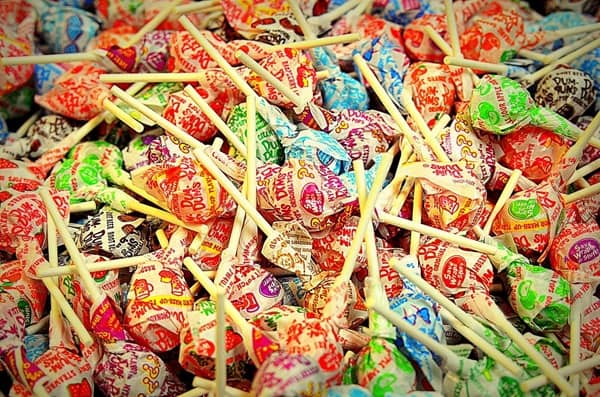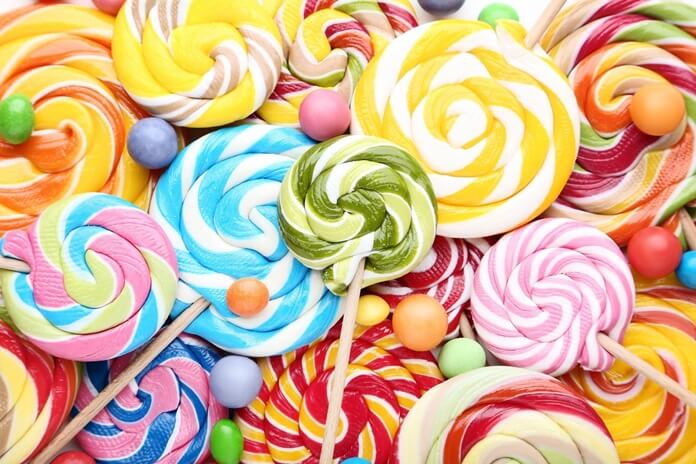National Lollipop Day is celebrated on July 20 by everyone, from young and old alike. So, grandparents, it’s time to relive those childhood memories! While people in the Midwest call lollipops “suckers,” they’re also known as “lollies” or “sticky pops” in other regions. Lollipops come in a variety of flavors, mostly fruity, and are made from flavored sucrose, water, and corn syrup, hardened on a stick for licking or biting.
Know The History of National Lollipop Day
Lollipops have been enjoyed in various forms for a very long time. In prehistoric times, cavemen used sticks to collect honey from beehives, creating the earlier version of lollipops by licking the sweet nectar on the stick.
Ancient Chinese, Egyptians, and Arabs also made treats by glazing fruits and nuts with honey and adding sticks for easier eating.
In the 17th century, with a surplus of sugar, the English began making boiled sugar candy and inserted sticks into these confections as well.
In Northern England, “lolly” means “tongue” and “pop” means “slap,” so “lolly pop” translates to “tongue slap.” This term was likely popularized by street vendors in London.
Moreover, in the 18th century, there was a growing effort to create refined versions of the modern lollipop.

By 1905, the McAviney Candy Company was producing boiled hard candies, and the owner would bring home sticks covered in hardened candy for his children. Later, in 1908, he began marketing these treats as “candy sticks.”
However, it was George Smith, owner of the Bradley Smith Company. who is credited with creating the modern lollipop we know today. He started making them in 1908 and trademarked the term “lollipop” in 1931. To appeal to kids, lollipops were also called “dum dum suckers.”
The first automated production of lollipops began in 1908 in Wisconsin, U.S.A. The Racine Confectioners Machinery Company created a machine that attached hard candy to sticks at a rate of 2,400 sticks per hour.
In 1916, Russian immigrant Samuel Born invented the similar machine called the ‘Born Sucker Machine’. It was so successful that San Francisco awarded Born the ‘key to the city’ that year. Today, there are over 100 varieties of lollipops available in all shapes and sizes.
Also read, National Cherry Day – July 16, 2024
| Ancient Times (Honey Sticks) | Ancient peoples across the world eat honey off of sticks, the earliest precursors to lollipops. |
| 1600s (English Suckers) | The English put sticks in boiled sugar candies to make them easier to eat. |
| 1908 (The Industrial Pop-alution) | The Racine Confectionery Machine Company invented a machine that can produce 2,400 lollipops per minute. |
| 1931 (Pop Patent) | George Smith, who says he invented the idea of putting candy on a stick, patents the term ‘lollipop’ (though it’s now in the public domain). |
5 Interesting Facts about Lollipop
- The Mystery Flavor is a blend of two flavors that mix together between batches on the machine.
- Lollipop got its name because the sales manager wanted a word that was easy for kids to say.
- Lollipop is gluten-free
- Today, 16 million Lollipop are made every day.
- Lollipops are primarily sold in the U.S., but they are also available in Mexico, Canada, and a few other countries.
Frequently Ask Question
Why Is Lollipop Day Celebrated?
National Lollipop Day is celebrated to honor the invention of the lollipop and to enjoy this sweet treat that brightens childhood and brings joy to everyone. It’s a day to indulge your sweet tooth and appreciate the fun and happiness that lollipops provide.
How Many Lollipops Are Made in a Day?
The world’s largest lollipop maker, Tootsie Roll, produces 16 million lollipops every day.
Is Lollipop Good for Health?
Licking or sucking on lollipops too much is not great for your health because they contain a lot of sugar. Consuming them in moderation is best to avoid negative health effects like tooth decay and high sugar intake.
You may also like to read, National Sour Candy Day – July 18, 2024
